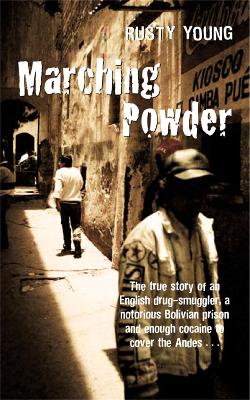Reviewed by Heather on
Thomas McFadden was a cocaine smuggler. When he was double crossed by the Bolivian officials that he had bribed for safe passage, he ended up in San Pedro. San Pedro was an unusual prison. You needed to pay an entrance fee to be allowed inside. Thomas had had all his money taken by the police so he was already in trouble. He also needed to prove that a black native English speaker was British and not an American spy.
Once inside no services were provided. You weren't assigned a cell or given meals. Cells needed to be purchased. Meals were bought in restaurants run out of cells or prisoners cooked in their own kitchens. Ingredients were bought from women who ran stores out of their husbands' cells.
Women and children lived in the prison with their husbands and fathers. They were free to leave every day to go to work or school.
There were five neighborhoods in the prison. The most exclusive had an entrance outside the main prison gates. That was were the politicians and drug lords lived. Thomas couldn't afford that. By getting money wired from friends he was able to eventually buy a cell in one of the two nicer neighborhoods inside. These had gates that closed at 9 PM to keep the bad people out. When you buy a cell, there was a real estate transfer that was recorded in the neighborhood logs. You got a deed. It could be mortgaged if needed. Some people were speculators who bought several cells. They rented them out or used extra cells to run businesses. Thomas' business was giving tours. He was the best tour guide and word of mouth in the back packing community made him famous.
Cocaine production was a major industry in the prison. The best cocaine in Bolivia was made there. That was what a lot of the tourists came for. Some stayed for months.
I had never imagined that a prison would be run like this. Thomas was here for several years in the 1990s. His story of learning to adapt and thrive in this environment is intriguing. His attempts to move through the Bolivian legal system are frustrating. This is a story that you haven't read before.This review was originally posted on Based On A True Story
Reading updates
- Started reading
- 19 November, 2016: Finished reading
- 19 November, 2016: Reviewed
